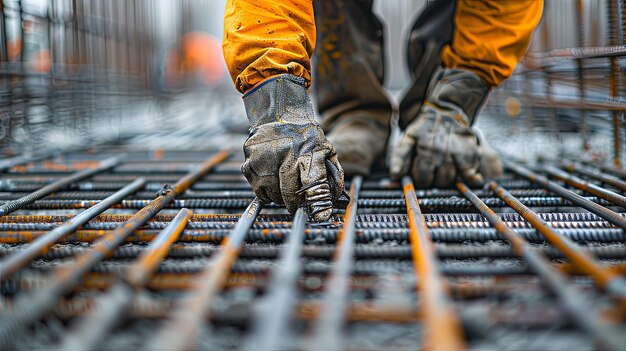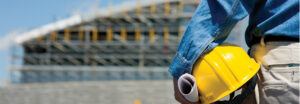The Dubai Municipality exam for Steel Construction Contracting is designed to test civil engineers‘ knowledge and skills in structural steelwork. This exam ensures that candidates thoroughly understand steel construction practices, from design to execution, in compliance with local regulations and international standards. This guide provides an overview of the exam eligibility, structure, syllabus, and preparation tips.
The exam covers essential topics related to structural steel design, fabrication, and construction practices. Below are key areas to focus on:
Also Read:
- Dubai Municipality Exam Syllabus & Process-Civil Engineers
- Guide to Start Your Civil Engineering Career in Dubai
Steel Construction Contracting Exam Syllabus by Category
G1:
1. Dubai Building Codes:
Basic understanding of local regulations, focusing on safety and compliance for small to medium projects.
Download Now: Dubai Municipality Steel Construction MCQs
2. Column-Beam Connections
Types of Connections: Engineers must be able to draw and explain various column-beam connections, which include:
- Web Cleats
- Flange Cleats
- End Plates
- Flange Plates
- T-Section Connections
- Double Angle Connections
- Welded Connections
Enroll Now: Dubai Municipality Mock Test for Steel Construction Contracting
3. Roof Framing Plans
Roof Structure Components: Candidates should be able to draw and interpret roof framing plans, focusing on key elements like:
- Rafters
- Purlins
- Bracing
- Sag Rods
3. Grades of Structural Steel
Knowledge of steel grades such as Grade 43 (BS 4360) is crucial. Candidates should understand material properties, load-bearing capacity, and how these grades apply to large projects.
4. Edge Distance Standards
Candidates should refer to standards such as AISC ANSI 360-10 to determine the minimum edge distance for bolt placement, ensuring safety and structural integrity in large projects.
5. Welding Types and Inspection
Types of Welding: Engineers must know how to draw and label various welds, including:
- Fillet Welds
- Butt Welds
Welding Inspection: Understanding inspection techniques to ensure proper weld quality and safety in large-scale construction is vital. Methods include visual inspection and non-destructive testing (NDT).
6. Beam Deflection and Limits
Acceptable Deflection: Knowledge of deflection limits for beams, particularly in large structures, and the ability to calculate and assess deflection under loads is important. This includes understanding permissible deflection limits as per international standards.
7. Construction Practices and Safety
Emphasis on safe construction practices and basic site management for smaller steel construction projects.
Also Read:
- Dubai Municipality Exam Syllabus & Process-Civil Engineers
- Guide to Start Your Civil Engineering Career in Dubai
G4 :
1. Advanced Column-Beam Connections
- Understanding of web cleats, flange plates, and double-angle connections used in complex steel structures.
- Knowledge of the appropriate applications for each connection type to ensure structural stability and load transfer.
Download Now: Dubai Municipality Steel Construction MCQs
2. Detailed Roof Framing Plans
- Proficiency in interpreting and creating roof framing plans that include critical elements like bracing, sag rods, and rafters.
- Ability to work with more complex site drawings for larger-scale projects, ensuring accurate implementation of structural elements.
3. Advanced Welding Techniques
- Expertise in various welding techniques such as fillet welds and butt welds.
- Thorough understanding of inspection methods and adherence to safety standards to ensure high-quality welding and structural integrity.
Enroll Now: Dubai Municipality Mock Test for Steel Construction Contracting
4. Steel Grades and Standards
- Comprehensive knowledge of different steel grades and their applications, including materials like Grade 43 (BS 4360) and other international standards.
- In-depth understanding of how these grades influence the performance of structural components under load.
5. Deflection Limits
- Mastery in calculating and assessing deflection limits for large beams and other structural components.
- Ensuring that deflection stays within acceptable limits to maintain structural safety and functionality, especially in high-load scenarios.
6. Lateral Load Resisting Systems
Engineers should be well-versed in lateral load-resisting systems (shear walls, braced frames, moment-resisting frames) that are essential for resisting forces like wind and seismic loads in large structures.
7. Project and Construction Management
Basic project management principles for large steel construction projects, including scheduling, cost estimation, and quality control.
8. Dubai Building Codes:
A detailed application of local building regulations, emphasizing safety, quality standards, and compliance for large-scale projects.
G12 and Unlimited:
The exam syllabus for G12 and Unlimited categories is similar to that of G4, but the questions are more advanced and challenging. Candidates are expected to demonstrate a deeper understanding of complex steel construction projects, including advanced design, safety standards, and technical problem-solving, which are crucial for managing large-scale projects.
Also Read:
- Dubai Municipality Exam Syllabus & Process-Civil Engineers
- Guide to Start Your Civil Engineering Career in Dubai
Eligibility Criteria for Dubai Municipality Steel Construction Contracting
G+1 Category: Bachelor’s degree in Civil or Architecture Engineering with a minimum of 3 years of experience.
G+4 Category: Bachelor’s degree in Civil Engineering with a minimum of 5 years of experience.
G+12 Category: Bachelor’s degree in Civil Engineering with a minimum of 7 years of experience.
Unlimited Category: Bachelor’s degree in Civil Engineering with a minimum of 10 years of experience.
Tips for the Steel Construction Exam for Dubai Municipality
1. Understand the Syllabus
Focus on key topics like column-beam connections, roof framing plans, welding techniques, steel grades, and Dubai Building Codes.
2. Review Relevant Standards
Familiarize yourself with AISC, BS 4360, and Dubai-specific construction codes to ensure compliance.
3. Practice Drawing Connections
Be confident in sketching and labeling column-beam connections, roof layouts, and welding types.
4. Master Deflection and Load Calculations
Practice calculations for deflection limits and lateral load-resisting systems.
5. Take Mock Tests
Simulate the actual exam experience with mock tests to identify strengths and weaknesses.
Enroll Now: Dubai Municipality Mock Test for Steel Construction Contracting
6. Time Management
Practice solving questions within a set time frame to build speed and efficiency.
7. Stay Updated on Dubai Building Codes
Ensure you’re familiar with the latest local safety and compliance regulations.
8. Focus on Practical Knowledge
Understand real-world applications of theoretical concepts to excel in problem-solving questions.
9. Organize Study Resources
Use comprehensive study materials, guides, and diagrams to reinforce your understanding.
Download Now: Dubai Municipality Steel Construction MCQs
10. Stay Consistent and Confident
Prepare steadily, revise frequently, and approach the exam with confidence.




